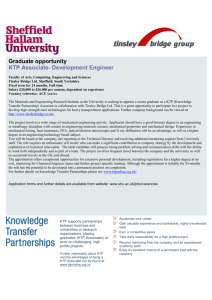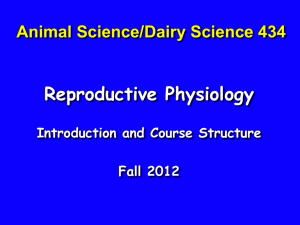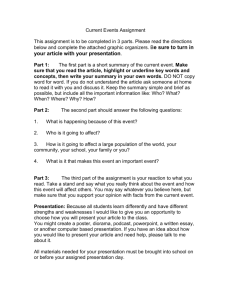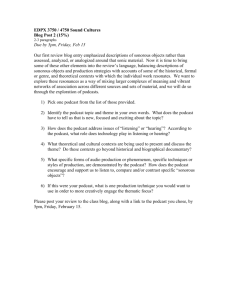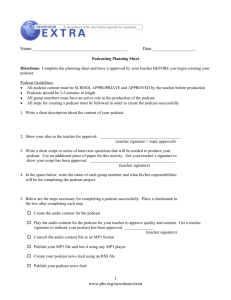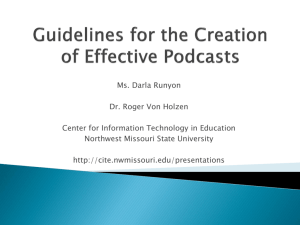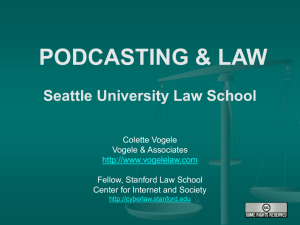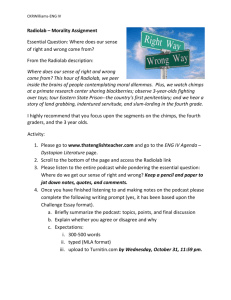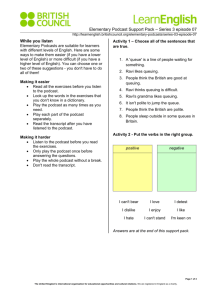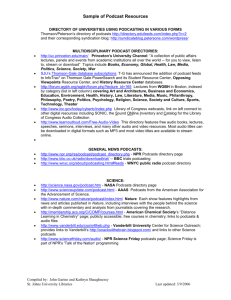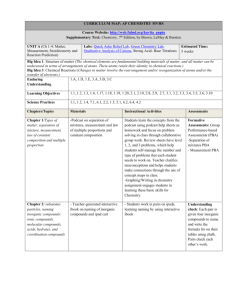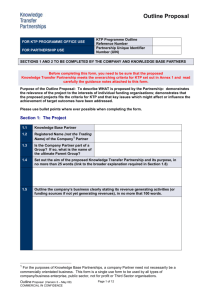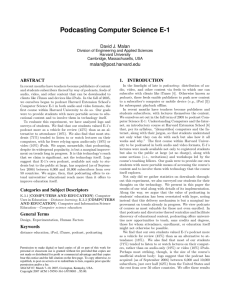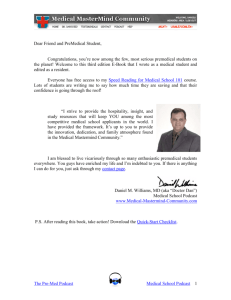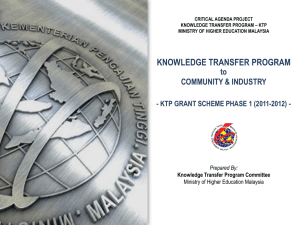LISS Podcast Critical Writing Transcript
advertisement
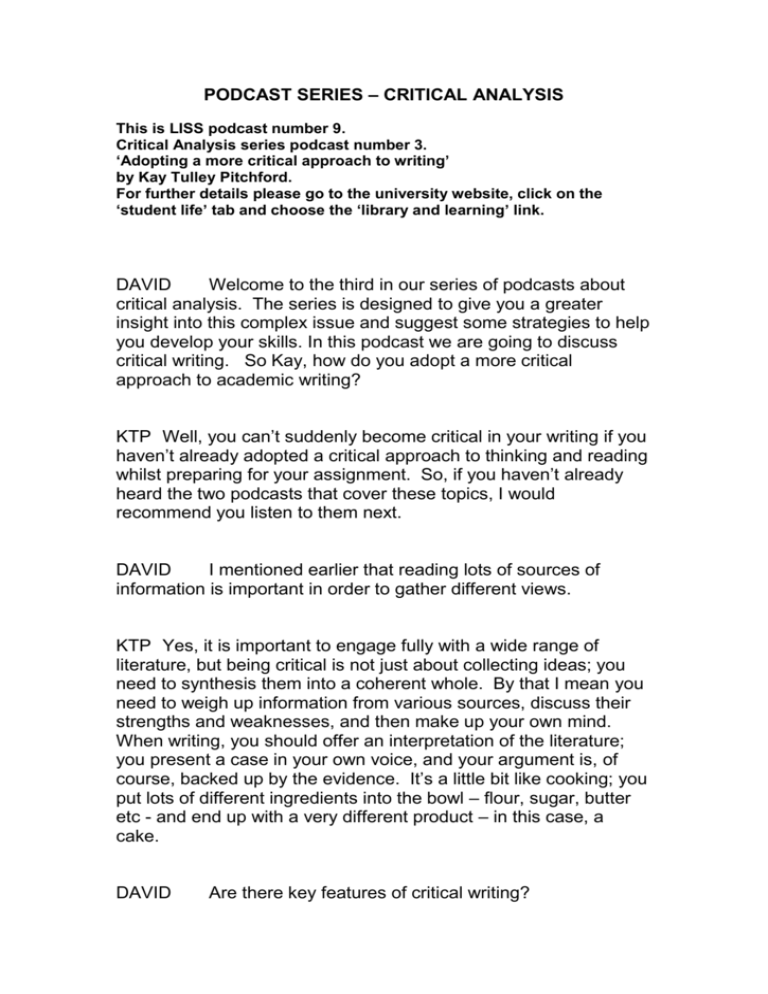
PODCAST SERIES – CRITICAL ANALYSIS This is LISS podcast number 9. Critical Analysis series podcast number 3. ‘Adopting a more critical approach to writing’ by Kay Tulley Pitchford. For further details please go to the university website, click on the ‘student life’ tab and choose the ‘library and learning’ link. DAVID Welcome to the third in our series of podcasts about critical analysis. The series is designed to give you a greater insight into this complex issue and suggest some strategies to help you develop your skills. In this podcast we are going to discuss critical writing. So Kay, how do you adopt a more critical approach to academic writing? KTP Well, you can’t suddenly become critical in your writing if you haven’t already adopted a critical approach to thinking and reading whilst preparing for your assignment. So, if you haven’t already heard the two podcasts that cover these topics, I would recommend you listen to them next. DAVID I mentioned earlier that reading lots of sources of information is important in order to gather different views. KTP Yes, it is important to engage fully with a wide range of literature, but being critical is not just about collecting ideas; you need to synthesis them into a coherent whole. By that I mean you need to weigh up information from various sources, discuss their strengths and weaknesses, and then make up your own mind. When writing, you should offer an interpretation of the literature; you present a case in your own voice, and your argument is, of course, backed up by the evidence. It’s a little bit like cooking; you put lots of different ingredients into the bowl – flour, sugar, butter etc - and end up with a very different product – in this case, a cake. DAVID Are there key features of critical writing? KTP Critical writing tends to give more depth. So, within the confines of a word count, your essay might have to cover fewer themes but you would examine each in much more detail than simple descriptive writing. Of course, that means that you have to make judgements about what you do include and what you leave out. It is, therefore, important that you identify the significance of the themes you do address – ‘Why is this idea interesting or important?’. After analysis of the evidence, a critical writer should highlight what conclusions can be drawn. Sometimes, of course, issues are complex, and things are not always black and white. It’s that the case, it’s fine to say so. You should always remain objective and present both sides. DAVID Any more tips? KTP Students should consider the language they use when writing. In particular, the verbs they use when presenting the evidence in their essays can help them sound more critical. So, for example, rather than writing ‘Smith says that individuals are motivated by basic needs’, you could write ‘Smith clearly demonstrates that individuals are motivated by basic needs’. This shows your tutor how you feel about Smith’s work – you are being positive about it. If you wanted to show that you were not impressed with Smith’s work, you could use Davidrases like ‘Smith neglects to mention, or Smith makes assumptions that...’. There are more examples of useful verbs on the Skills@Cumbria site on Blackboard. One final point to make – adopting a critical approach to writing takes time. You cannot write a good critical essay overnight. It is important to write your first draft and then allow time to reflect on whether you have presented a structured argument. Have you captured the essence and significance of the topic? DAVID Thanks, Kay. You’ve given us some useful tips on how to adopt a more critical approach to academic writing. In the next podcast in this series lecturers will give their views on what it means to be critical.


